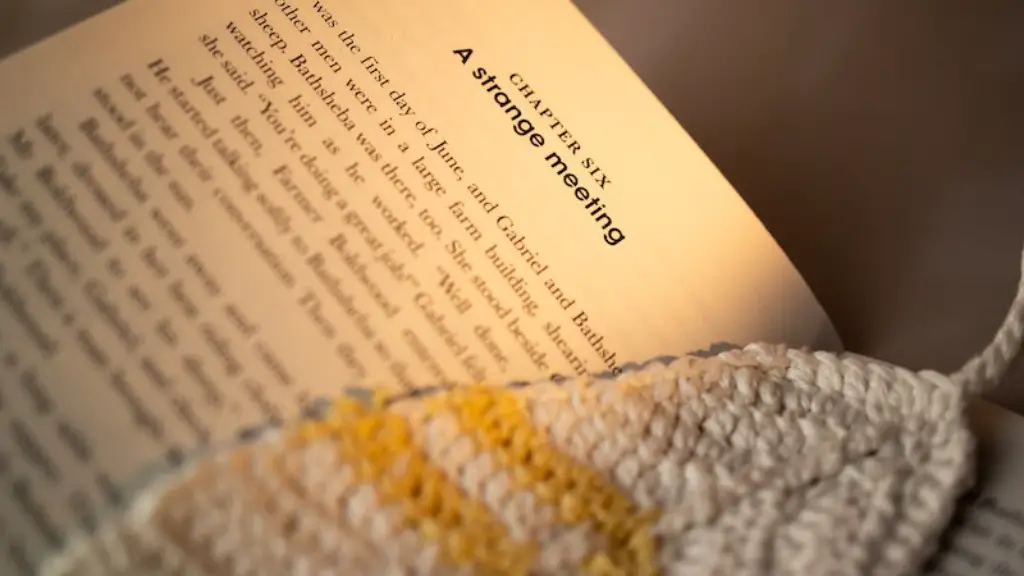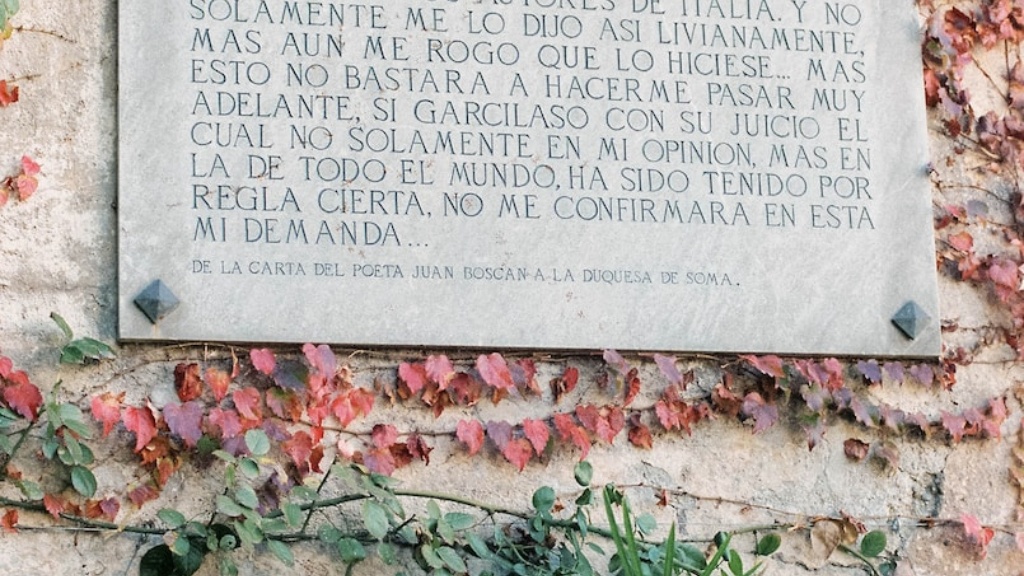Understanding Surrealism
Surrealism is an artistic and literary movement that began in France in the early twentieth century and became one of the most influential artistic movements of the twentieth century. It is famous for its original use of imagination, dream imagery and evocative juxtapositions of images and objects. The aim of surrealism was to provide a postmodern response to the modern world by highlighting the absurd and exploring the juxtaposition between dream-like fantasy and the real world.
Surrealist poetry emerged from this artistic movement as a way of expressing the surrealist worldview in a poetic form. While surrealist poetry no longer has the same levels of influence as it did in its heyday, it still remains an important poetic form that forms an important part of the surrealist tradition. In this article, we will explore what surrealist poetry is, how it is written, and how you can write your own surrealist poem.
What is Surrealist Poetry?
Surrealist poetry is a type of poetry that uses surrealist techniques and themes. These techniques include the use of dream imagery, evocative juxtapositions, altered states of consciousness, and elements of surprise. It is often seen as more lyrical than other forms of surrealist art, as it uses poetic devices such as metre and rhyme to express its ideas and to encourage the reader to interact with the text in a more expressive way.
The themes of surrealist poetry are often drawn from the surrealist movement itself, which encompasses themes such as the power of dreams, the exploration of the subconscious mind, and the juxtaposition of everyday life with abstract concepts and surreal images. Surrealist poetry also often uses symbolism and metaphor to explore these themes in a more creative and unexpected way.
How to Write Surrealist Poetry
Writing surrealist poetry is a unique and interesting process. It involves combining elements of the real world with your own imagination and dreams to come up with something truly unique and captivating.
The key to writing surrealist poetry is to think outside the box and explore how you can use the language of poetry to express ideas and images that are both strange and captivating. Here are some tips on how to write surrealist poetry:
- Explore your subconscious mind: Surrealist poetry often draws upon the unconscious mind to create its images and juxtapositions. Take some time to explore your own dreams and subconscious thoughts, and use them as sources of inspiration for your poem.
- Start off with a single image: Start off with a single image or concept, and let your imagination take you from there. It can be anything, from a strange creature to a weird landscape – the possibilities are endless!
- Use free association: Try to think of as many words and images that are linked to your initial image as possible. This can help you to come up with interesting juxtapositions and unexpected twists.
- Create a surreal atmosphere: Use your words and images to create a surreal atmosphere in your poem. Think of the way the images interact with each other, the way the words sound and feel, and the overall mood of the poem.
- Don’t be afraid to experiment: Writing surrealist poetry is all about experimentation, so don’t be afraid to try something new. Explore different possibilities and push the boundaries of your own imagination.
Examples of Surrealist Poetry
Surrealist poetry was popularized by writers such as Andre Breton, Louis Aragon and Paul Eluard. Here are few examples of surrealist poetry by these writers:
- “Every morning the snow is tattooed into lovely frescoes in the park.”
—Andre Breton, “Snow” - “A strange tree with roots of fire/Makes your heart flutter like a choir.”
—Louis Aragon, “Tree” - “The night, so soft and white./My lips, so red and bright.”
—Paul Eluard, “Night”
As you can see, all of these poems feature evocative images and metaphors that create a surreal atmosphere.
Tips for Writing & Publishing Surrealist Poetry
Writing surrealist poetry can be a tricky process, but it can be immensely rewarding if you stay true to the surrealist ethos. Here are some tips for writing and publishing surrealist poetry:
- Be creative: Surrealist poetry requires you to think outside the box, so don’t be afraid to explore new possibilities and use your imagination.
- Stay true to the surrealist ethos: Make sure to stay true to the surrealist ethos when writing your poem. Don’t be afraid to take risks and go beyond the traditional boundaries of poetry.
- Read widely: Read other surrealist poems to get a better understanding of the form. This will help to give you an idea of what to aim for when writing your own poem.
- Seek feedback: Seek feedback from others on your poem. This can help you to refine your poem and make sure that it is as good as it can be.
- Publish your poems: Publishing your poems can help you to reach a larger audience and get your work out there. Consider submitting your poem to magazines or websites that specialize in surrealist poetry.
Surreal Writing Exercises
Surrealist poetry often requires a bit of practice and experimentation to really master. Here are some exercises that you can use to help develop your surrealist writing skills:
- Create a surreal landscape: Choose a place in the real world, such as a forest or a beach, and use your imagination to create a surreal version of it. Think about the details of the place and how they might be different in a surreal version.
- Write a surreal short story: Use your imagination to create a surreal version of a real-life story. Think about the characters, their actions, and how to create a surreal atmosphere.
- Write about a dream: Think about a dream that you had recently, and then write a poem based on it. Pay close attention to the images and details in the dream, and think about how you can express them in poetic language.
- Write a surreal list: List down the items that you would find in a surreal place. Think about images, concepts and objects that are

